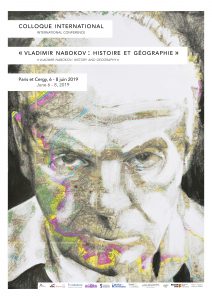
The « Vladimir Nabokov : history and geography » conference is the fourth international scientific event organized by the Vladimir Nabokov French Society. It will be held over the course of three days (June 6-8) at Cergy-Pontoise University and Sorbonne University, and will end with an afternoon session at the National Museum of Immigration (Porte Dorée palace).
*******
The year 2019 will be an important one in Nabokov studies. It will mark a hundred years since the beginning of the writer’s exile, forced in 1919 to leave Russia after the Bolshevik Revolution. It will also mark the 50th anniversary of the publication of Ada, or Ardor (1969), a major novel in which the author reconfigures history and geography on a global scale.
This conference aims at replacing the historical and geographical dimensions of Nabokov’s work on the critical map, which have remained relatively understudied for reasons having to do with a certain tradition of critical interpretation and reception. By examining the connections between Nabokov’s texts and history and geography, we would like to read Nabokov against the grain by questioning certain interpretations that insist on the autotelic character of his work and its resistance to historical and geographical discourses. History and geography represent however two major concerns in Nabokov’s writings, which work in close interaction and the study of which has recently brought to the fore a new understanding of Nabokov.
From this perspective, the conference will call attention to the changes of place and language as well as the historical evolutions that marked Nabokov’s life and career. Of interest will also be the notion of referentiality and the ways in which historical and geographical realities are transmuted into fiction. On these accounts, various spaces and times in Nabokov’s fiction will be explored, among which: Russia (its language, literary tradition, culture and history, the memories attached to it as well as its retrospective construction); Germany, Berlin and emigration; Germany and the rise of Nazism; Paris and the “blood spots” staining the streets in the wake of the Revolution; Paris and emigration; America as the land of territorial exploration and butterfly-hunting, where highbrow and pop cultures mingle; Switzerland as neutral ground, in relation with the suspension of history and the mode of the pastoral in Ada. The conference will also be the occasion to hear reflections on what the oft-used words “invention” and “creation” signify in the construction of Nabokov’s novelistic universes, as well as on the metaphor of writing as creation and exploration of a world discussed in “Good Readers and Good Writers.”
Symposium organizers: Yannicke Chupin (Université de Cergy-Pontoise) : [email protected]); Agnès Edel-Roy (Université de Paris-Est Créteil) : [email protected]; Anne-Marie Lafont (Société française Vladimir Nabokov) : [email protected]; Monica Manolescu (Université de Strasbourg) : ([email protected]; Sigolène Vivier (Sorbonne Université): [email protected].
This three-day international conference, organized by the Société française Vladimir Nabokov, is funded by: the Vladimir Nabokov Literary Foundation, the Institut des Amériques, the Fondation de l’Université de Cergy-Pontoise, research labs of Sorbonne Université (Equipe VALE-EA 4085), Université de Cergy-Pontoise (Equipe AGORA-EA7392), Université de Paris-Est Créteil (Equipe LIS-EA4395), Université de Strasbourg (Equipe SEARCH-EA2325), Lycée Rimbaud (Istres), INES (Région PACA).
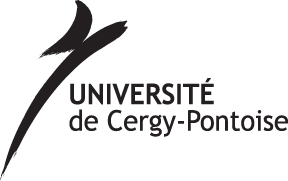
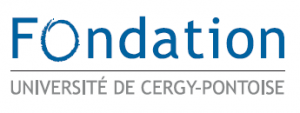

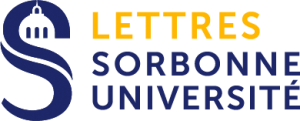
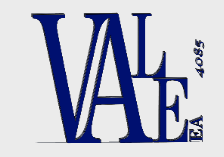


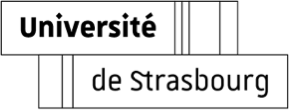


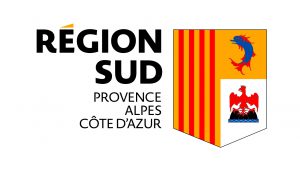
The call for papers is now closed. Among the topics initially solicited for submission:
– Historical and geographical sources in Nabokov’s work
– Referentiality and fictionalization of historical and geographical reality
– Poetic treatment and metamorphoses of history and geography
– Rereadings and rewritings of historical events, political regimes, ideologies and philosophies of history
– Reinvention and recreation of history and geography
– Imaginary worlds
– Writing about exploration, writing as exploration
– Travels, journeys, exploration, movement and displacement
– Nabokovian spaces and times in translation
– The critical reception of Nabokov’s texts in relation with history and geography
For any enquiry, please write to the Symposium organizers: [email protected]
Isabelle Poulin (Université de Bordeaux Montaigne)
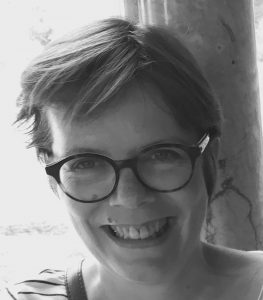
Isabelle Poulin is Professor of comparative literature at the University Bordeaux Montaigne. She is a former student of the Ecole Normale Supérieure Fontenay-Saint-Cloud. She has published widely on Nabokov’s work (V. Nabokov lecteur de l’autre, PUB, 2005 ; Écritures de la douleur : Dostoïevski, Sarraute, Nabokov, Le Manuscrit, 2007 ; Le Transport romanesque. Le roman comme espace de la traduction, de Nabokov à Rabelais, Classiques Garnier, 2017) and has written about translation and its connections to exile and community (Histoire de la traduction en langue française. 1914-2000, B. Banoun, Y. Chevrel et I. Poulin eds., Verdier, 2019).
Will Norman (University of Kent)
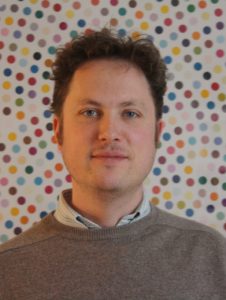
Will Norman is a scholar of twentieth-century American literature and culture. Will received his DPhil from Oxford University and has taught since 2008 at the University of Kent, where he is a currently Reader in American Literature and Culture and director of the Center for American Studies. He has been a Fulbright Scholar at Yale University and a Visiting Research Fellow at the University of Sydney. He is the author of Transatlantic Aliens: Modernism, Exile and Culture in Midcentury America (Johns Hopkins UP, 2016) and Nabokov, History and the Texture of Time (Routledge, 2012), and the editor with Duncan White of Transitional Nabokov (Peter Lang, 2009). Transatlantic Aliens was awarded the publication grant of the Terra Foundation for American Art. His interests include modernism, transatlantic studies, crime fiction, and mid-century American culture. He is currently writing about complicity in post-1945 American literature and co-editing a special issue of Comparative Literature Studies on the topic. He is also co-editing an issue of the European Journal of American Studies on cartography in American literature and art.

Programme
6 juin 2019, Université de Cergy Pontoise, Site des Chênes 1, amphithéâtre Simone Veil
9h00 : Accueil et ouverture du colloque/Welcome and opening remarks
9h30-10h30 : Conférence plénière/Keynote address
Présidente : Agnès Edel-Roy (Université de Paris-Est Créteil, France)
- Isabelle Poulin (Université Bordeaux Montaigne, France) : « La carte sur le ventre ou le versant animal de l’histoire dans l’œuvre de Vladimir Nabokov »
10h30-11h00 : pause/break
11h30-12h30 – Atelier 1 – Géographies, mobilité et déplacements/Geographies, Mobility and Displacement
Présidente : Yannicke Chupin (Université de Cergy- Pontoise, France)
- Sophie Bernard-Léger (Sorbonne Université, France) : « Poétique de la mobilité : expéditions physiques et mentales dans le Don »
- Bénédicte Bintein (chercheuse indépendante, France) : « “L’intelligence du sentier” : considérations sur le déplacement en territoires nabokoviens »
- Sébastien Wit (Université de Picardie-Jules Verne, France) : « Géographie zemblienne et délinéarisation du roman »
12h30-14h00 : Déjeuner/Lunch, Passerelle, Université de Cergy-Pontoise
14h00-16h00 : Atelier 2 – Topographies réélles et imaginaires/Real and imaginary topographies
Présidente : Jacqueline Hamrit (Université de Lille 3, France)
- Zsuzsa Hetényi (ELTE University, Hongrie/Hungary) : “Magyar Morsels. Mapping Nabokov’s image of ‘Magyar’ and ‘Hungarian’”
- Alexander Dolinin (University of Wisconsin–Madison, États-Unis/United Sates) : “Trans-American Travels in Lolita: Additions and Corrections to Dieter Zimmer’s Study”
- Jenefer Coates (chercheuse indépendante, Angleterre/England) : “Signposts and symbols: Imaginary places in Lolita”
- Marie Bouchet (Université Toulouse-Jean Jaurès, France) : “Nabokov’s Poetic Texture of the Real: The Referential Relation in ‘A Guide to Berlin’, Lolita and Ada”
16H00-16H15 : pause/break
16H15-17H45 : Atelier 3 – Approche imaginaire et sensorielle de l’histoire et la géographie/Imaginary and corporeal approaches to history and geography
Président : Michaël Federspiel (Université d’Angers, France)
- Léopold Reigner (Université de Rouen Normandie, France) : « “Play! […] Invent reality!” Nabokov et l’imagination vraie »
- Stanislas Gauthier (Université Bordeaux Montaigne, France) : « Une approche sensorielle de l’histoire et de la géographie, contre “les claquements sauvages de bannières” : l’écrivain comme nouvel “homme de la frontière” »
- Sabine Metzger (Universität Stuttgart, Allemagne/Germany) : “Nabokov’s Sonic Geographies”
18h00 – 20h00 Cocktail et lectures par Nama Keita et Nicolas Perrochet d’extraits d’Ada ou l’Ardeur /Cocktail and reading of excerpts from Ada, or Ardor performed by Nama Keita and Nicolas Perrochet (Amphi Simone Veil, site des Chênes 1, Université de Cergy-Pontoise)
7 juin 2019, Sorbonne Université, amphithéâtre Guizot
9h-10h : Conférence plénière/Keynote address
Présidente : Monica Manolescu (Université de Strasbourg, France)
- Will Norman (University of Kent, Angleterre/England) : « Nabokov’s Wrong Turns »
10h-10h30 : pause/break
10h30-12h30 : Atelier 4 – Relire et réécrire l’histoire/Rereading and Rewriting History
Présidente : Géraldine Chouard (Université Paris- Dauphine, France)
- Jullian Connolly (University of Virginia, États-Unis/ United Sates) : “Russian ‘Souvenirs’: Artifice and Authenticity in Nabokov’s Depictions of Russia”
- Alexia Gassin (Sorbonne Université, France) : « Nabokov, écrivain de la modernité : l’exemple de la ville de Berlin »
- Adam Liebermann (University of Wisconsin-Madison, États-Unis/ United Sates) : “Travel in Nabokov’s Glory”
12h30-14h30 : déjeuner/lunch
14h30-16h : Atelier 5 – Intertextualité et re-création/Intertextuality and Recreation
Président: Will Norman (University of Kent, Angleterre / England)
- Dana Dragunoiu (Carleton University, Canada) : “Lolita and Proust’s Cahier 36”
- Stanislav Shvabrin (University of North Carolina-Chapel Hill, États-Unis/ United Sates) : “‘Tearing the Web of When and Where’: Jean Richepin and Vladimir Nabokov as Interlocutors”
16h-16h30 : pause/break
16h30-18h00 : atelier 6 – Relectures et réécritures de l’histoire, des régimes politiques, des idéologies et des philosophies de l’histoire/Political and philosophical rereadings of history
Présidente : Suzanne Fraysse (Aix-Marseille Université, France)
- Michele Russo (Università di Foggia, Italie/Italy) : “Speak History: Geographical Dislocations in Nabokov’s Autobiography Speak Memory. An Autobiography Revisited (1967)”
- John Brick (Marquette University, États-Unis/ United Sates) : “‘Replete With Unexpected Coherence’: Pale Fire and Émigré Experience”
- Agnès Edel-Roy (Université Paris-Est Créteil, France) : « L’Eutopia dans Ada, ou la reconfiguration esthétique de l’histoire politique du vingtième siècle : contre l’électricité de Vladimir Lénine, le « souci d’eau » de Vladimir Nabokov »
20h00 : Banquet/Conference Dinner
8 juin 2019, Sorbonne Université / Musée national de l’histoire de l’immigration
Sorbonne Université, amphithéâtre Guizot
10h00-11h30 : atelier 7– Identité, créativité et mondes imaginaires/Identity, creativity and imaginary worlds
Présidente : Julie Loison-Charles (Université de Lille 3, France)
- Morgane Allain-Roussel (Université de Rouen Normandie, France) : « Parler entre les langues, ou en “Nabokovien” : perte ou reconquête de l’identité de l’écrivain Vladimir Nabokov ? »
- Elena Devos (chercheuse indépendante, France) : « Les orchidées pour l’herbier de Marina — l’intertextualité d’un détail botanique et sa participation dans la création du monde imaginaire du roman Ada »
11h30-13h00 : déjeuner/lunch
13h00-14h00 : projection de l’adaptation de Machenka, réalisée par des élèves du Lycée Rimbaud (Istres, France)/screening of Machenka, an original creation by the high school students of Lycée Rimbaud (Istres, France)
14h00-14h30 : Débat avec les lycéens et leur professeure, Anne-Marie Lafont/Discussion with the high school students and their teacher, Anne-Marie Lafont (chercheuse indépendante, France)
Musée national de l’histoire de l’immigration (Palais de la Porte dorée), médiathèque
15h30-18h30 : programme culturel au Musée national de l’histoire de l’immigration /cultural program at the National Museum of the History of Immigration
- Marianne Amar (Musée national de l’histoire de l’immigration, France) : introduction illustrée sur l’émigration russe/An illustrated introduction to Russian émigration.
- Introduction aux Lettres à Vera de Vladimir Nabokov/Introduction to Letters to Véra by Vladimir Nabokov
- Performance « Sans nuage» d’Alexandra Loewe, avec la participation du comédien Philippe Fenwick/Performance “sans nuage” by Alexandra Loewe, with the participation of actor Philippe Fenwick
- Visite de la section « immigration russe » du musée/Visit to the « Russian émigration » section of the museum
The international conference « Vladimir Nabokov : history and geography » will be held in three different locations: the Thursday session (June 6) will take place at Cergy-Pontoise University, in the Simone Veil amphitheater. The Friday and Saturday sessions (June 7 and 8) will take place at Sorbonne University, in the Guizot amphitheater. Starting 3:30 pm on Saturday, we will gather at the National Museum of Immigration (Porte Dorée Palace).
*******
Thursday, June 6th, Simone Veil amphitheater, Cergy-Pontoise University, Site Chênes 1
RER A to “Cergy-Le-Haut”, Get off the train at « Cergy-Prefecture » ; Downloap RER A map
Note that your RER ticket must be validated at both stations (arrival and departure).
Get off the train at « Cergy-Prefecture ». After passing the turnstile, take the elevator on your right to a piazza. Walk straight ahead to a passage under a building (bakery on the right, CIC Bank on the left). It takes you to a smaller piazza. Take the other passage ahead of you (tea and coffee shop on the left and fast food on the right). Walk to the parking lot and cross the street (Boulevard du Port) to a footbridge that takes you to Cergy’s Campus The Building « Chênes 1 » is the biggest with giant UCP posters on it. Take the entrance on the right end side of the building. Once inside, go right again and you’ll find « Amphithéâtre Veil » after passing a double glass door.
Download access map : Amphi Simone Veil, Université de Cergy-Pontoise, Chenes
*******
Friday, June 7th – Saturday, June the 8th 2019, Guizot amphitheater, Sorbonne University.
Sorbonne University, métro / RER Saint-Michel (ligne 4 / RER B) or métro Odéon (ligne 4, ligne 10). See Metro map
Alighting at Saint-Michel station, follow the Saint-Michel boulevard with the Seine in your back and the Cluny Museum of the Middle Ages on your left. Once you reach the Place de la Sorbonne, cross it past the fountain and make a left on rue de la Sorbonne. You can access the University at number 17. Cross the courtyard and enter the main building in front of you via the door nearest to the Chapel and the stone benches. You will get into the main hall ; the Guizot amphitheater will be on your right.
Download access map : Amphi Guizot-Sorbonne Université
*******
Saturday, June 8th, 3:30 – 6:30 pm, National Museum of Immigration (Porte Dorée Palace)
Going to the museum : http://www.palais-portedoree.fr/en/directions
This list is a selection of mid-range hotels near the Sorbonne conference venue. It does not include higher priced hotels or the cheaper hostels. Please feel free to do your own research to identify the right accommodation option for you.
Hôtel Novanox, 155 bd. Montparnasse, 75006 Paris
Timhôtel Odessa Montparnasse, 8 Rue d’Odessa, 75014 Paris
Hôtel de la Paix, 225 Boulevard Raspail, 75014 Paris
Hôtel Mercure Paris Montparnasse Raspail, 207 Boulevard Raspail, 75014 Paris
Le Royal Hôtel Rive Gauche, 212 Boulevard Raspail, 75014 Paris
Hôtel Istria Montparnasse, 29 Rue Campagne Première, 75014 Paris
L’Apostrophe Hôtel, 3 rue de Chevreuse, 75006 Paris
Hôtel Le Clos Notre Dame, 22, rue de l’Hirondelle 75006 Paris (métro Saint-Michel)
Hôtel Familia, 11, rue des Ecoles 75005 Paris (Cardinal Lemoine)
Hôtel Excelsior, 20 rue Cujas 75005 Paris (Cluny Sorbonne, RER Luxembourg)
Hôtel Minerve, 13, rue des écoles, 75005 Paris (Cardinal Lemoine, *Mutualité, *Jussieu)
Hotel Port-Royal, 8, bd Port-Royal 75005 Paris (métro Gobelins)
Grandes Ecoles, 75, rue du Cardinal Lemoine 75005 Paris (Cardinal-Lemoine, Place Monge, Jussieu)
Résidence Les Gobelins, 9, rue des Gobelins 750013 Paris (Gobelins, Place d’Italie)
Hôtel Virgina, 66, rue du Père Corentin 75014 Paris (Porte d’Orléans)
Grand Hôtel Leveque, 29, rue Cler 75007 Paris (Ecole militaire, La Tour Maubourg)
Hôtel du Parc, 6, rue Jolivet 75014 Paris (Montparnasse Bienvenue)
Hôtel Solar, 22 Rue Boulard, 75014 Paris (Denfert-Rochereau)
Hôtel de l’Espérance, 15 Rue Pascal, 75005 Paris (Les Gobelins)
Belambra city – Magendie, 2-4 Rue Magendie, 75013 Paris (Les Gobelins)
